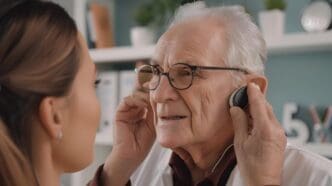In a recent survey conducted by The Associated Press-NORC Center for Public Affairs Research, it was found that about half of U.S. adults consider the use of weight-loss drugs such as Ozempic and Wegovy beneficial for individuals struggling with obesity. However, there is notable hesitancy surrounding their use among teenagers.
According to the poll, which surveyed 1,147 adults, there is a substantial agreement that weight-loss drugs are a positive option for adults dealing with obesity or related health issues, with approximately 50% of respondents in favor. Yet, the acceptance rate drops significantly when the focus shifts to teenagers aged 12 to 18, revealing divided opinions on the matter. About one-third of participants view the use of such medications in teens as favorable, another third consider it negative, and the remaining respondents are neutral.
These drugs, known as GLP-1 receptor agonists and initially designed to treat diabetes, gained popularity after their approval by the Food and Drug Administration for weight loss in 2021. Their presence is now widespread across various platforms, from celebrity endorsements to social media discussions. Medical professionals advocate for these drugs, highlighting their effectiveness in managing obesity. The American Medical Association has even urged insurance companies to cover these medications. Additionally, the American Academy of Pediatrics has recommended their consideration for teenagers facing obesity challenges.
Despite the push from healthcare professionals, public opinion remains cautious, especially concerning the use of weight-loss drugs in demographics not traditionally associated with obesity, such as non-obese teens. Dr. Cate Varney from UVA Health illustrates the situation by comparing obesity treatments to providing proper tools for construction tasks, emphasizing medication’s role in leveling the playing field for those battling obesity.
Anjanette Ewen, a respondent and Florida resident, credits her significant weight loss and the subsequent identification of a cancerous lump to the use of one such drug, after years of weight fluctuations due to polycystic ovarian syndrome. This personal account underscores the potential life-changing impact of these medications for some individuals.
However, financial considerations also play a crucial role in the accessibility of weight-loss drugs. Without insurance coverage, the expenses can be significant, with some prescriptions costing hundreds of dollars. While about half of those surveyed support the idea of federal programs like Medicare and Medicaid covering these drugs, a notable portion opposes or remains neutral on governmental financial support.
For teens not battling obesity, a clear majority of Americans, particularly those over 45, view the usage of these medications as inappropriate. This opinion is slightly more lenient among younger adults, which could indicate a shift in perception over time.
The poll, conducted January 9-13, utilized the probability-based AmeriSpeak Panel to ensure it represents the U.S. population. It has a margin of error of plus or minus 3.9 percentage points.
This extensive study reflects a significant split in public opinion on weight-loss drugs, highlighting both the accepted role for obese adults and the contentious debate about their use in teenagers. As discussions on medical treatment for obesity continue, considerations of age, medical necessity, and financial impact will likely remain focal points.








